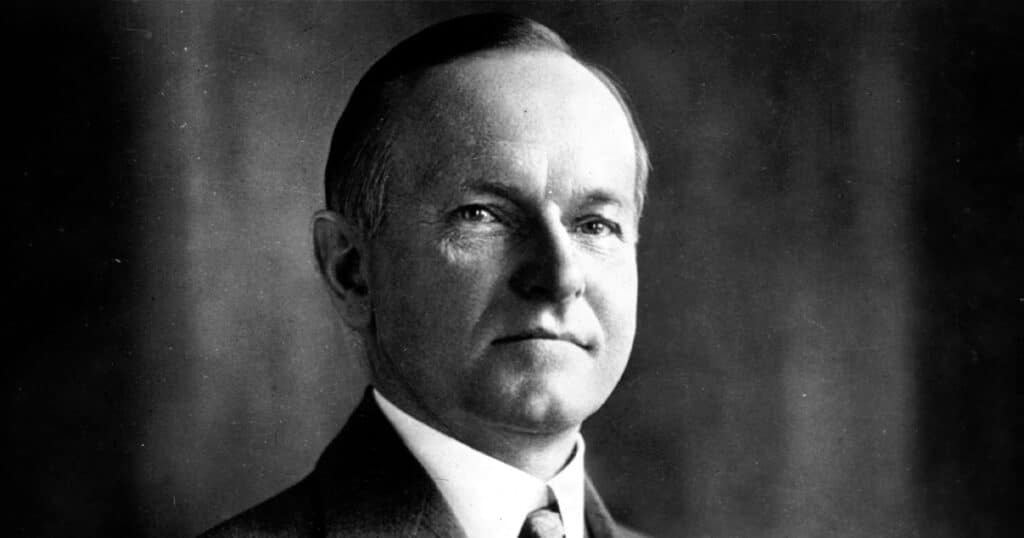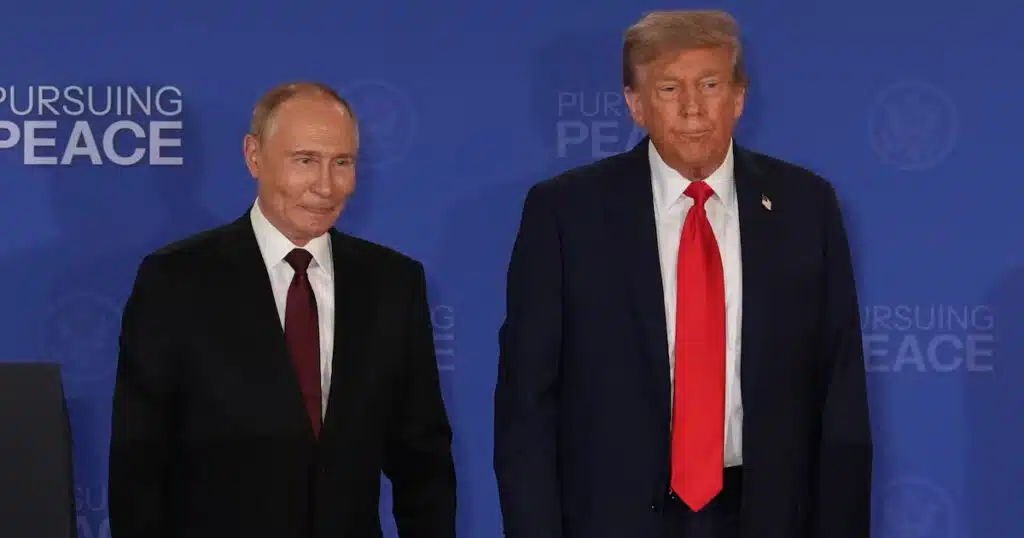
Gov. Ron DeSantis takes inspiration from Calvin Coolidge
During the fourth Republican presidential candidate debate, the four participating candidates were asked to name a past president who would serve as an inspiration for their administration.
In his response, Gov. Ron DeSantis stated that he would take inspiration from President Calvin Coolidge. Coolidge, stated DeSantis, is “one of the few presidents that got almost everything right.” Further, DeSantis argued that “Silent Cal” understood the federal government’s role and “the country was in great shape” under his administration. Gov. DeSantis is correct that any future administration should take inspiration from President Coolidge. The conservatism of Coolidge is exactly what our country needs. Whether in his political philosophy or temperament, Calvin Coolidge can serve as a guide for today’s policymakers.
Conservatives during the 1920s placed the American Founding and the Constitution as their philosophical center as a “veritable cult of Constitution worship flourished.” President Warren G. Harding highly espoused the Founders and the Constitution, which he described as “the very base of all Americanism, the ‘Ark of the Covenant’ of American liberty, the very temple of equal rights.” Harding also stated that “it is good to meet and drink at the fountains of wisdom inherited from the founding fathers of the republic.” Coolidge, just as with Harding, believed in the wisdom of the Founding Fathers and adhering to the Constitution.
As president, Coolidge was a champion of adhering to constitutional limited government. He believed that economic policy was moral. Coolidge often referred to economy in government, which meant a balanced budget, reducing spending, tax rates that were low and reasonable, and paying down the national debt.
Both Harding and Coolidge would be appalled at the escalating national debt and the reckless spending. President Coolidge regarded “a good budget as among the most noblest monuments of virtue.” In terms of economic policy, President Coolidge reduced government spending and lowered tax rates. The architect of the Coolidge economic policy was Secretary of the Treasury Andrew Mellon. When Coolidge assumed office, the federal budget was $3.14 billion and it was lowered to $2.96 billion when he left. The top income tax, which had been over 70 percent during President Woodrow Wilson’s administration, was slashed to 25 percent under Coolidge.
The conservatism of Calvin Coolidge goes further than just limited government, spending reductions, and lower tax rates. Americanism was another cornerstone of Coolidge’s political philosophy. “We do not need to import any foreign economic ideas or any foreign government. We had better stick to the American brand of government, the American brand of equality, and the American brand of wages. America had better stay American,” stated Coolidge.
Coolidge’s conservatism also included the preservation of American sovereignty, a restrained foreign policy, limiting and assimilating immigration, and protecting the national economy through tariffs. The Americanism of the 1920s represented placing the interests of Americans first, which was the campaign slogan of Senator Warren G. Harding in the 1920 presidential election.
In terms of foreign policy, President Coolidge focused on “preserving American independence.” “While we desire always to cooperate and to help, we are equally determined to be independent and free,” stated President Coolidge. Coolidge also supported tariffs as an economic measure to protect the American economy and workers.
Coolidge believed that the protective tariff not only benefited the national economy, but also protected American workers. As Coolidge stated:
The greatest asset of our whole economic system is its effect upon commerce, agriculture, industry, the wage earner, and the farmer, and practically all our producers and distributors, is our incomparable home market. It has always been a fundamental principle of the Republican Party that this market should be reserved in the first instance for the consumption of our domestic products…Our only defense against the cheap production, low wages and low standard of living which exist abroad, and our only method of maintaining our own standards, is through a protective tariff. We need protection as a national policy, to be applied wherever it is required.
During his presidency, Coolidge also “moved carefully but firmly to create a protectionist majority on the Tariff Commission.” During the presidential campaign of 1924, Coolidge campaigned on the theme the “Full Dinner Pail,” a campaign slogan used previously by President William McKinley. The “Full Dinner Pail” represented economic prosperity, high wages, and a sound economy, all by prospering America first.
Finally, Coolidge applied his conservativism to immigration. Republicans during this era stressed Americanism and assimilation of immigrants. Coolidge supported this policy, as he stated:
New arrivals should be limited to our capacity to absorb them into the ranks of good citizenship. America must be kept American. For this purpose, it is necessary to continue a policy of restricted immigration. It would be well to make such immigration of a selective nature with some inspection at the source and based either on a prior census or upon the record of naturalization. Either method would insure the admission of those with the largest capacity and best intention of becoming citizens.
In 1924, President Coolidge signed the Johnson-Reed Act into law, which restricted immigration. Coolidge supported the measure with some reservations, but restricting immigration was viewed to be in the national interest. As Coolidge argued:
Restricted immigration is not an offensive but a purely defensive action. It is not adopted in criticism of others in the slightest degree, but solely for the purpose of protecting ourselves. We cast no aspersions on any race or creed, but we must remember that every object of our institutions of society and government will fail unless America be kept American.
During a 1924 speech to a group of labor leaders, President Coolidge outlined two fundamental aspects of a successful American economy. The first policy he outlined was “restrictive immigration,” and the second policy was “a tariff for protection.” The third important policy principle that Coolidge stood by was “economy of expenditure” or limited government. All three led to a period of economic prosperity or the “Roaring Twenties.”
Calvin Coolidge was not an ideologue, but rather believed in a conservative philosophy. In other words, he did not worship at the altar of free markets. Coolidge understood that it was important to place the good of the nation above ideology. Today’s Republican Party can learn a lesson from Coolidge. Whether the issue is foreign policy, trade, immigration, taxes, or spending, Coolidge provides an example for policymakers in how to implement sound conservative policies.
Gov. DeSantis is correct that we should all take inspiration from President Coolidge.



